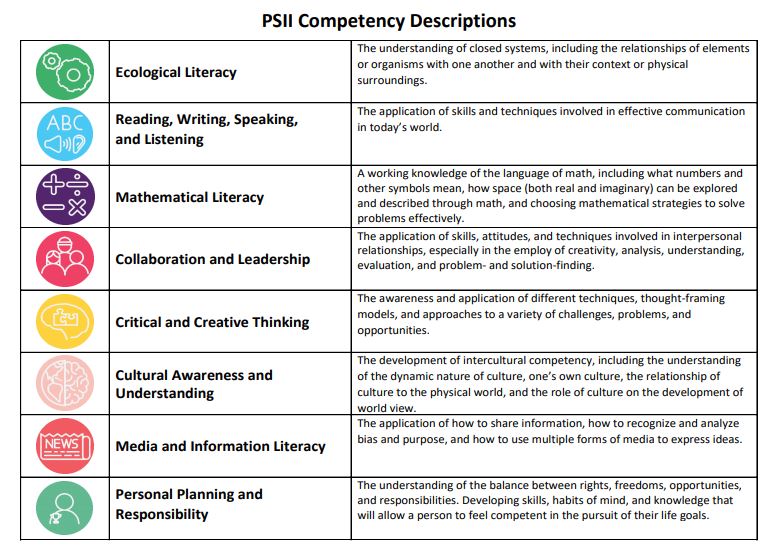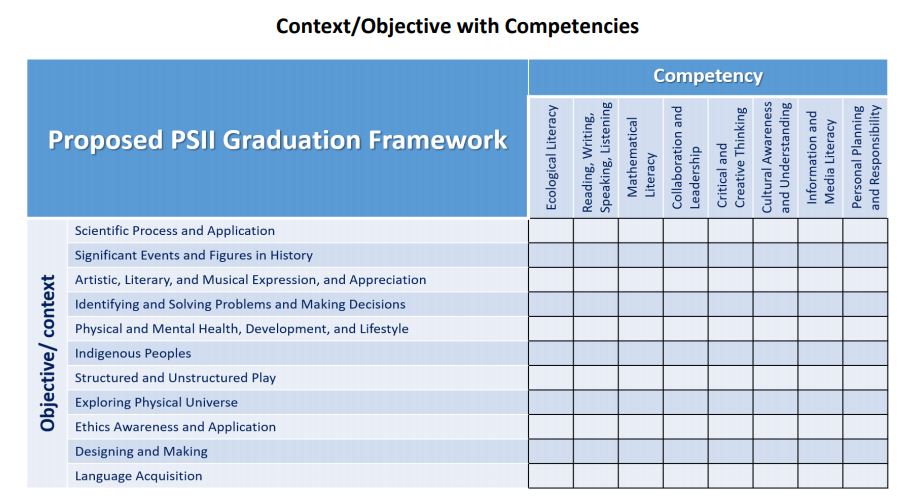This week we were given the opportunity to visit the Pacific School of Innovation and Inquiry (PSII), located in downtown Victoria. We were introduced to the philosophy and methodology of the school by its founder Jeff Hopkins. Below are two of Jeff’s TED talks in which he discusses his ideas surrounding learning and what learning should be.
The Pacific School of Innovation and Inquiry, as indicated by its name, operates based on student inquiry. Incredibly, all of the resources used by the school to promote this type of learning are made accessible and can be found on their website (for example their inquiry tools page), on their twitter @PSIIvictoria, or at Human Learning Institute. The school website is aimed more at students and parents, whilst the human learning institute is designed for educators.
The school currently has 95 students and 7 teachers, making the student-teacher ratio approximately 14:1. I was impressed by these numbers as they allow for significant one-on-one learning and attention if needed. Despite being inquiry-based, PSII is not classified as an alternative school. They operate entirely within the BC school system. The main way in which they do this is by having 8 major learning competencies that expand on/compliment the BC curriculum. The students are given opportunities to engage in learning that they are passionate about, and it is through these projects that students engage the competencies. Pictured below are the competency descriptions and a checklist for the different aspects of the competency that must be covered, as available from PSII as a part of their Competency Assessment Framework.


One piece of information that I found especially interesting was how much collaboration there is at PSII. Not only is there collaboration amongst teachers to provide students with the best support for their respective inquiries, but often community mentors are brought in as well. Due to the infinite range of learning opportunities at PSII, there are occasions where the teachers are not familiar with a specific skill or field. Thus, instead of limiting the student based on teacher ability, the school reaches out to professionals in the community who can act as mentors to the students. In this way, the school’s advocacy for student choice and passion is evident.
Another aspect of PSII that is not unique to them, but still uncommon in the mainstream learning community is anecdotal report cards. PSII only assigns number grades for a student’s final report card. The remainder of the time, report cards speak to student progress on a scale using the terms developing, expanding, fluent, and proficient. A comparison to mainstream BC courses is also provided. For example, it will be shown to what degree their projects and competencies have contributed to the completion of those traditional courses. Unbeknownst to most people, parents can ask for anecdotal report cards within the mainstream school system. The model will not be the same as PSII but will focus on commentary about student progress rather than numbers.
At PSII, everything is centrally focused on the learner and their experience. As mentioned above, PSII is completely open about sharing resources, with the hope that more schools and educators will adopt similar learning systems. I know that I will be referring to the resources provided at the links above if I am to ever implement inquiry-based learning.
Featured image by Marvin Meyer on Unsplash

Leave a Reply